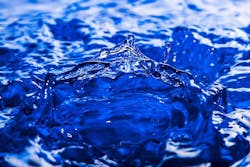The U.S. EPA announced its intent to revise the 2020 Clean Water Act (CWA) Section 401 Certification Rule.
This comes after determining that the rule erodes state and Tribal authority, according to EPA. EPA aims to strengthen the authority of states and Tribes to protect their water resources.
Under Section 401 of the CWA, a federal agency may not issue a permit or license to conduct any activity that may result in any discharge into waters of the U.S. unless a Section 401 water quality certification is issued or certification is waived, according to EPA. States and authorized tribes where the discharge would originate are generally responsible for issuing water quality certifications as well, according to the current rule.
The CWA also provides that states, authorized tribes, and EPA must act on a Section 401 certification request within a reasonable period of time, not exceeding a year.
The revision will provide opportunity for public and stakeholder input to inform the development of a proposed regulation. This will include sustained dialogue with state and Tribal co-regulator partners and local governments around these issues, according to EPA. The stakeholder engagement process will begin in June.
“We have serious water challenges to address as a nation and as EPA Administrator, I will not hesitate to correct decisions that weakened the authority of states and Tribes to protect their waters,” said EPA Administrator Michael S. Regan in the EPA news release. “We need all state, Tribal, local, and federal partners working in collaboration to protect clean water, which underpins sustainable economic development and vibrant communities. Today, we take an important step to realize this commitment and reaffirm the authority of states and Tribes.”
Under Section 401, a federal agency may not issue a license or permit to conduct any activity that may result in any discharge into navigable waters unless the affected state or Tribe certifies that the discharge is in compliance with the CWA and state law, or waives certification.
While EPA engages with stakeholders and develops a revised rule, the 2020 rule will remain in place, added EPA.


